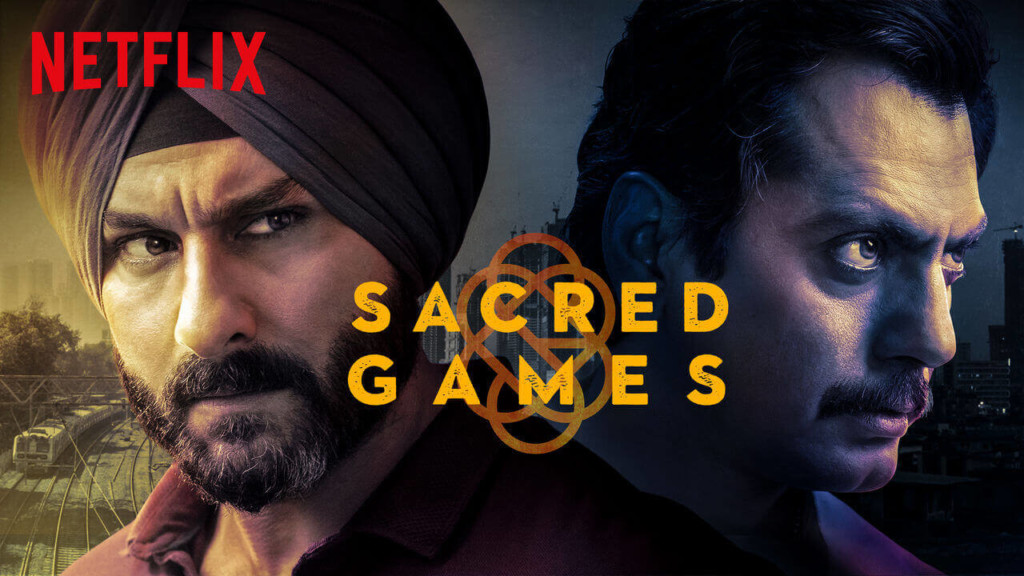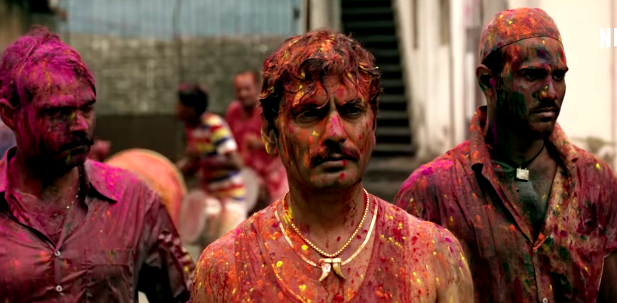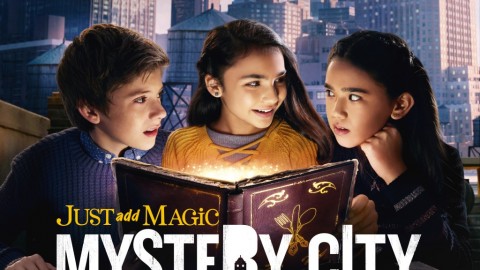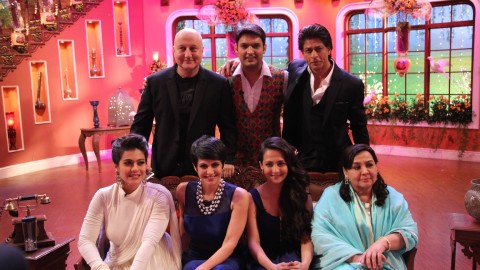
Vikram Chandra’s Sacred Games (2006), much like the Bombay, Mumbai or Bambai where it’s set, is allowed to sprawl. Stretched over 947 pages, Chandra’s characters find room for melancholy, aches, even their ennui. The Netflix frame, however, makes the novel taut. Something is always afoot. Chandra’s characters are now constantly looking over their shoulders. Almost every scene has a twist, every episode a climax. A riveting screenplay makes you greedy. You don’t miss that novelistic sprawl.
Respite always comes suddenly. In the aftermath of some irreversible gore, you see the upright inspector Sartaj Singh (Saif Ali Khan) sit on a beach, talking to Constable Katekar (Jitendra Joshi). Singh is sometimes prone to metaphor. Much like the ocean that washes up trash every day, Singh says, Mumbai’s police clean up the mess of crime.
Yet, each new day, there is more trash, more crime. Katekar, though, is a mindful optimist. “At least its clean today”, he says, watching his family wet their toes. Like everything profound in the show, this exchange passes quietly.
When churned, the ocean spews poison. In Sacred Games, we see this mythological reference play it out again and again. As Singh points out, Mumbai believes in repetition, and its fraught history has had a habit of repeating itself. Obsessed about endlessly in films and literature, the city and its epithets — ‘maximum city’ — are all clichés.
Ganesh Gaitonde (Nawazuddin Siddiqui), a dauntless gangster, does say “anything is possible here”, but watching Singh pop one Alprazolam after another, you realise these possibilities could well be those of an anxious mind, predicting grim catastrophes. Sacred Games makes the apocalypse imminent. Gaitonde tells Singh he has 25 days to save his city. Mumbai gives nobody time to rest.
Anjali Mathur (Radhika Apte), a RAW analyst from Delhi, allows us the advantage of an outsider’s gaze. Her view of Mumbai, we feel, might be objective, but neither her pragmatism nor her detachment ever really helps her piece the city together. Unlike Delhi, where politicians separate themselves in Lutyens bungalows, Mumbai makes nexuses more viable.
When everyone is a sardine packed in a tin, it becomes hard to tell which fish reeks the most. Cops and ministers are as corrupt as mobsters. Film stars get caught in the middle. The famed Mumbai underworld, it’s clear, works its way down the echelons. Bollywood, of course, has already told us this a few times.
Co-directed by Anurag Kashyap, some of Sacred Games seems familiar. Wearing a checked lungi, toting a gun, Siddiqui reminds us why Gangs of Wasseypur (2012) was seminal. But Sacred Games — a tad closer to the bone and to Mumbai — is perhaps more reminiscent of Kashyap’s Black Friday (2007). The characters in both are involved in schemes, the weight of which they can’t fully comprehend. In both, you see criminals catalyze the masses as much as politicians.
While Black Friday was about the lead-up to the 1993 Mumbai blasts and its aftermath, Sacred Games puts the Hindu-Muslim conflict in the context of modern history. Gaitonde, at one point, recounts how the then Prime Minister Rajiv Gandhi ordered the production of Ramanand Sagar’s Ramayan to deflect attention from his mishandling of the Shah Bano case. It was Ramayan’s Sunday broadcast, Gaitonde suggests, that reignited the Ayodhya Ram Mandir movement.
When a right-wing politician comes to Gaitonde for help, he points to members of his gang — a crew of Hindus, Muslims, Christians and Parsis. “We eat from the same plate”, he says. Gaitonde, though, hasn’t heard the price the politician is willing to pay. A 1980s secularism, he realizes, can be rather lucrative when sold.
In Sacred Games, religion is not abstract. It has direct and sometimes bodily consequences. Men are beaten, killed, their legs amputated for their faith. The Internet doesn’t just make possible realistic portrayals of sex and violence; it also enables the writers and directors of Sacred Games to tell a story of Mumbai that many of us will now identify with.
Singh asks, “Who is Mumbai?” The question is rhetorical. “It’s us, fucker!” Despite referring to the city as a living entity, Sacred Games is too gritty to succumb to romanticism.
My Verdict
My Ratings
4.5
It might look like yet another cops-and-gangsters show, but it's really a story about surviving a city that spews hope and poison every day.








